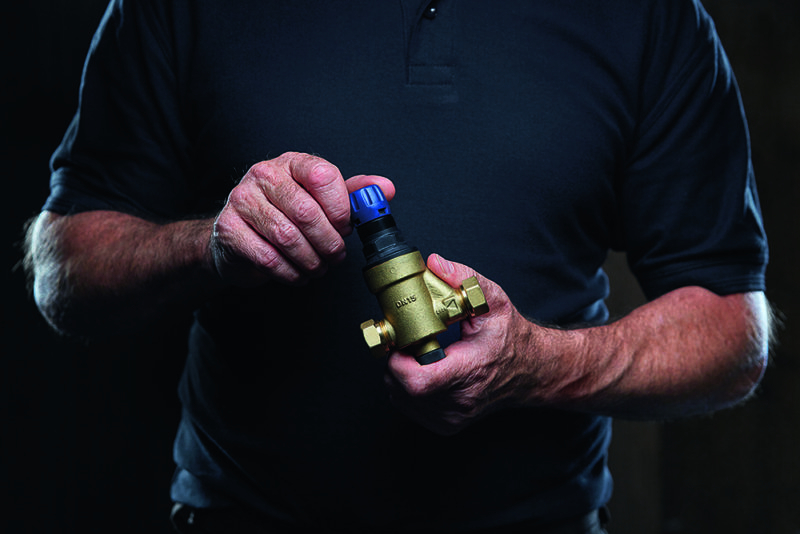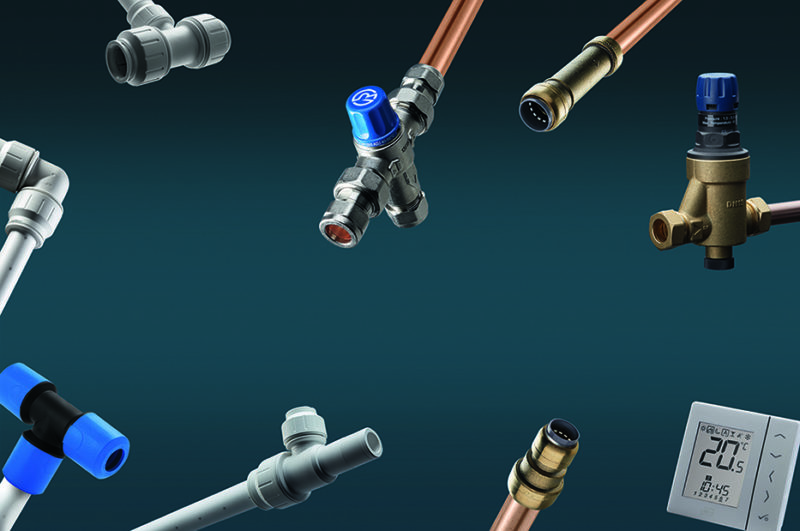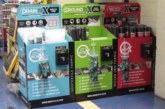
With the ever-growing digital age changing the nature of the trade counter, Tim Sykes, Divisional Director – National Sales Team at RWC, discusses why merchants and manufacturers must collaborate to succeed in an increasingly challenging marketplace.
Much like any other brick-and-mortar retail-orientated business, plumbers’ and builders’ merchants are under an increasing amount of pressure to stay ahead of the game. The marketplace is evolving faster than ever with a myriad of factors creating opportunities and threats.
Take for instance the advent of digital. Go back 10 to 15 years and the trade counter would be where merchants would be doing most of their business, by interacting with their customers and providing added value. This could be from giving advice on jobs, to making recommendations on products, and selling solutions face-to-face.
Fast-forward to the present-day, and while the trade counter is still a focal point for many merchants, it is undeniable that websites and online suppliers are now challenging the traditional counter business model. These virtual entities are becoming stronger and stronger, and as installers and contractors become more digitally savvy, they can now go online to search for prices and products.
Not just this, but they can easily find out stock and range information, branch locations, promotions, and even buy products online. The pressure of merchants having a strong online offering is now too hard to ignore.
Digital technologies are also giving installers and contractors more choice than ever before. Simply tap a few buttons and they can compare one merchant’s prices to another. In turn, merchants have fewer opportunities to build face-to-face relationships with customers and help them with their projects. Thus, keeping hold of a strong, loyal customer base is becoming more challenging.
Consumer brands have also influenced the merchant and installer relationship. Installers now want services like click-and-collect and next-day delivery, and expect merchants to be a one-stop shop where they can get all the supplies they need for the project at hand. By streamlining the product research and purchasing process, installers can reduce delays and lost jobs, and increase profit and reputation.
While the outlook may seem tough, it is important to remember what gives merchants their intrinsic, intangible value to installers — expertise, knowledge, quality products, and strong customer relationships and loyalty. Passing this knowledge on can only truly be done via face-to-face interaction, and so there will always be a place for the trade counter.
To ensure this value remains in the face of changing times, merchants must be able to count on manufacturers and suppliers to do their bit in collaboration with them and draw installers back to the store.
A helping hand
One of the biggest reasons for construction project delays is down to stock and a lack of materials. Ultimately, it is a huge frustration when installers are ready to get the project going, only to find that the parts they need aren’t available at the merchants.
In the plumbing and heating business, this can be made even more complex due to the number of manufacturers that supply pipe, valves and fittings (PVF) but each with slightly varying ranges. This is where merchants who can be that one-stop-shop really matter the most.
It is important that merchants have as complete a PVF ‘basket’ as possible, and that in turn means working with manufacturers who can supply a wide range of products. For example, RWC’s family of brands — JG Speedfit, Reliance Valves and SharkBite — offer pipes, water control valves and both plastic and metal push-fit fittings that integrate seamlessly with each other, helping simplify and speed up jobs.
Training support
Another well documented issue is the national skills shortage. Of course, overcoming this challenge won’t be solved in a day, but manufacturers and merchants can certainly do their bit to support. Training is imperative on new products to ensure installers know how to install them. To that end, merchants must work with manufacturers to create training days on-site, or at the merchant’s branch.
At RWC, for instance, our technical sales engineers are able to offer on-site training and ‘tool-box talks’, while our area sales managers can also provide training in-branch. This is especially critical when working with valves or underfloor heating, where pressures and flow rates must be set correctly to ensure safety and optimal performance.
Installers are likely to appreciate in-depth training sessions and see value beyond just product knowledge. Merchants that tap into these types of offers will be able to provide an added level of service to customers.
Merchants can also help overcome the skills shortage by stocking quality and reliable products that take the complexity out of installations by ensuring a simple right first time connection. To that end, the majority of RWC’s range is available in push-fit — both plastic and metal — thereby enabling leak-free connections to be made quickly and easily, in a safe and hassle-free way.
Sales support
Support from manufacturers should also extend beyond just training and products. With merchants stretched thin dealing with day-to-day administration and footfall in branch, it is imperative that manufacturers can help with marketing and demand creation.
In this respect, merchants and manufacturers should work together on sales leads. This is especially the case when it comes to bigger projects or developments, where warranty, accurate measurements and quotes are required. To help push the order through, sales managers from manufacturers should go on-site to meet customers and end users and help them through the buying journey.
To ensure trade counters and bricks-and-mortar stores keep up to date with the ever-evolving market and customers’ demands, marketing plays a huge role. For merchants who may not have a strong eCommerce offering, or the infrastructure to create marketing campaigns, manufacturers like RWC can help.
Whether it is through in-store promotions, email campaigns, competitions, discounts or otherwise, merchants should seek out the manufacturers that can help them drive installers through the door where sales can be made.
For more information about RWC’s products and support services for merchants, go to https://www.rwc.co.uk/customers/merchants/











